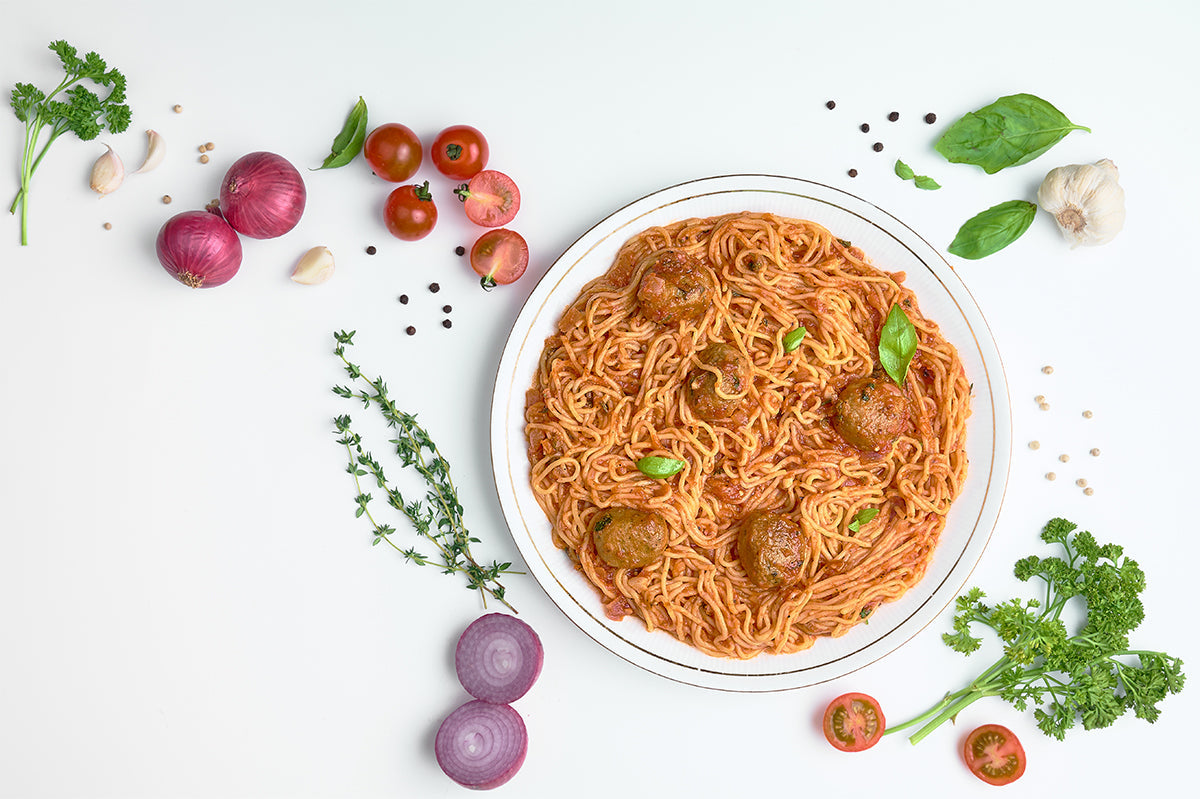
Why iTz noT's Meat Alternatives Are the Perfect Plant-Based Option

Why iTz noT's Meat Alternatives Are the Perfect Plant-Based Option
Because of the increasing consumer demand for foods rich in protein, plant-based meat alternatives have been developed. These alternatives usually have a nutritional profile that mimics that of their animal-based equivalents very closely. Opting for vegan meat alternatives eliminates a huge aspect of livestock farming (raising cattle and poultry), which is having immense environmental impacts on its own. The emergence of plant-primarily based meat substitutes from a global backdrop is propelled by successful advertising and marketing and innovative product improvement.
Still, the path to an entirely seamless meat substitute continues. Ongoing work is centred on improving product formulations and processing practices to increase quality. The addition of a wide range of additives to obtain the sought-after texture, juiciness, mouthfeel, and meaty taste may then prompt serious questions about food safety, nutrients, cost, ingredient disclosure and consumer purchase trust.
As mindful eating trends change this way and that, iTz noT is a brand that is leading the way for disruption for the right reasons. These are proof that being environmentally friendly can be mouth-watering. We promise to offer healthy fuel for your body and bliss for your taste buds – with a low-carb, gluten-free, and 100% cruelty-free promise. Also, our products are made with a very careful emphasis on sourcing and environmentally sound practices. iTz noT comes with an amazing taste and smell experience, plus by eating it, you will contribute to taking care of the planet.
The Building Blocks of Meat Substitutes From Plants
The choice of ingredients is essential in shaping the main properties of meat substitutes, including their texture, taste, and appearance. Generally, their compositions are high water (50–80%), % non-textured protein (4–20%), vegetable textured protein (10–25%), flavour additives (3–10%), fat (0–15%), bases colouring agents (0–5%) and binders (1–15%). Combined, these ingredients create a texture and mouthfeel reminiscent of meat. This high water level not only pitches down cost but also adds to juiciness, softens during processing, and helps emulsification. The extra protein is a key element in texture as well as Mojo.
They can replace meat, leading to fully vegetarian and vegan dishes with textured proteins from non-animal, plant-based sources. Meat extenders on their own may not possess the characteristic texture, colour, and flavour of cooked beef. Yet, they can improve the overall properties of products if added in conjunction with meat. On the other hand, meat substitutes are developed to imitate the full form, texture, taste, and appearance of cooked and moist meat without any animal-based materials.
This is where the emphasis on the consistency of raw materials with fewer chemical or needless additives comes into play. Binding agents and water binding agents are included in it, such as soy protein concentrates, egg whites, wheat gluten, starches and hydrocolloids, as water holding capacity is crucial for optimal texture. However, consumers will be pleased only if a product looks and tastes good.
The Health Factor Behind Plant-Based Meats
The vitamins, minerals, and antioxidants that are found naturally in plant-based ingredients are also associated with improved health outcomes. Studies have found that plant-based diets are great for diabetes management and prevention , as well as for a healthy gut microbiome and weight management. In addition, they may help with slowing down the cascade of events that lead to metabolic disorders such as cardiovascular disease and hypertension.
Red and processed meats may contain potential carcinogens that can raise cancer risk, health organizations, including the World Health Organization (WHO) and American Heart Association (AHA), have said. The AHA even advises including more plant protein in your meal plan as opposed to beef for your heart. Learn low fat pasta ideas with iTz noT!
But most plant-based meat substitutes are packed with saturated fats, fillers, and added sodium too. Moreover, some producers also enrich their products with vitamin B12 (a vital vitamin that is only found in nature in animal products); however, this is not universal, unlike animal products, so this can make some plant-based options nutritionally deficient (with vitamin B12) as well. Zinc and some other nutrients may be lower in plant foods than in conventional meat.
Strong Arguments for Why People opt for Vegan Meat
As interest and need for vegan meat grows and grows, you might wonder: what if I started eating vegan meat? The advantages are clear:
- The ethical way: You make the biggest impact on the reduction of animals bred for food (and that will be slaughtered despite it all).
- Availability of environmental responsibility: It offers a sustainable and more eco-friendly type of food production.
- High nutritional value: It can be quite nutrient-dense and, most importantly, taste good.
With the rising awareness of the need for sustainability and environmental impact, people are searching for sustainable options more than ever.
Tropical deforestation and climate change wetlands and the positive effects of substituting vegan meat – including land use, climate change mitigation, and water conservation – all add up over time. It is one of the largest sources of greenhouse gas emissions and has a huge carbon footprint on conventional livestock agriculture.
Plant-based foods can cause a big decrease in carbon emissions. If you are in a region such as the UK where you need to grab some quick and healthy, you can check out the health-conscious iTz noT program offering plant-based and vegan food options.Learn low fat pasta ideas with iTz noT!
The iTz noT – Conclusion The sustainable, satisfying choice.
Meat analogues resolve a number of the difficulties posed by the usual production of meat. They consume substantially less water and land and produce far lower levels of greenhouse gas emissions. A plant-based diet even improves mental performance. In addition, an adequately planned plant-based diet can meet all calcium, vitamin, and protein needs. Opting for plant-based substitutes such as iTz noT is as easy and effective as it gets, allowing you to give in to your cravings without having to sacrifice the taste and texture of your go-to meals during your transition to vegan.
At iTz noT, everything we do revolves around sustainability. This includes a commitment to partner only with local and sustainable suppliers, creating as little waste as possible during our production methods, and using eco-friendly packaging. So, enjoy your meals because , with iTz not, you can eat well and do good for your planet, too.






















































